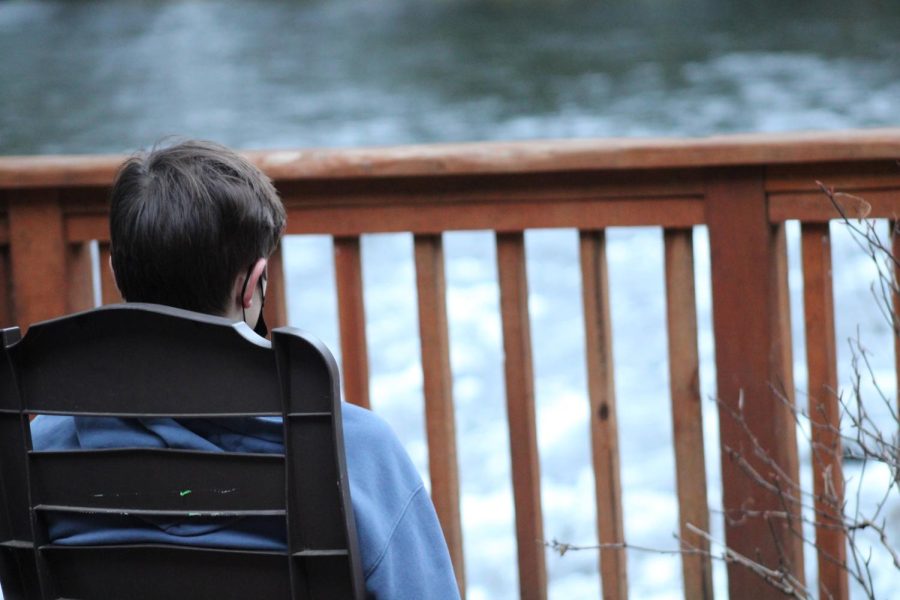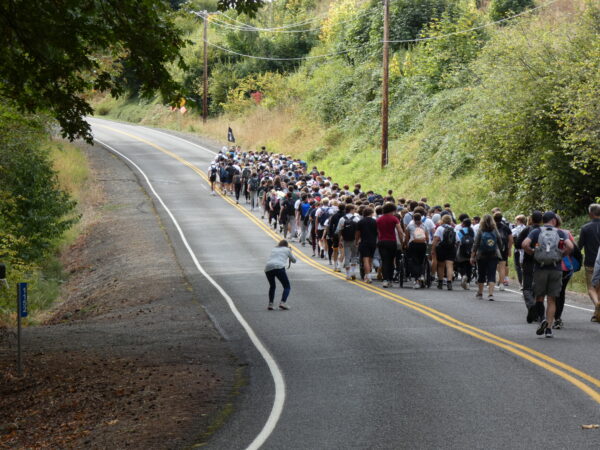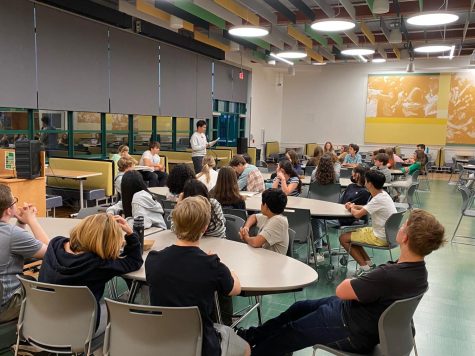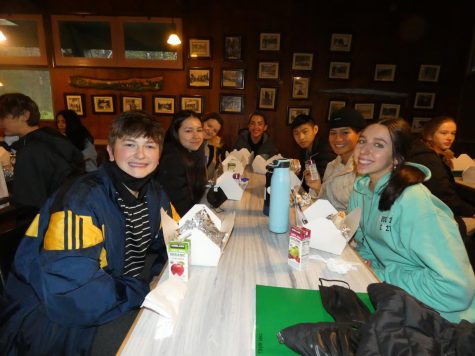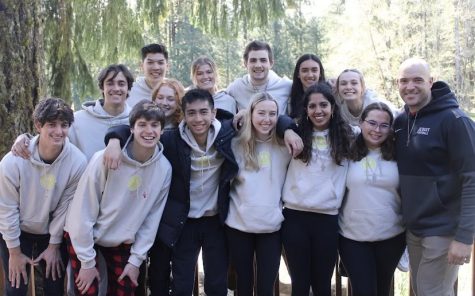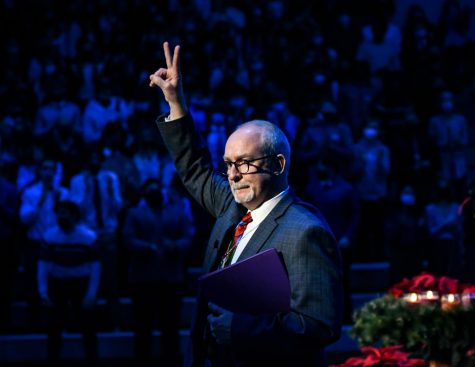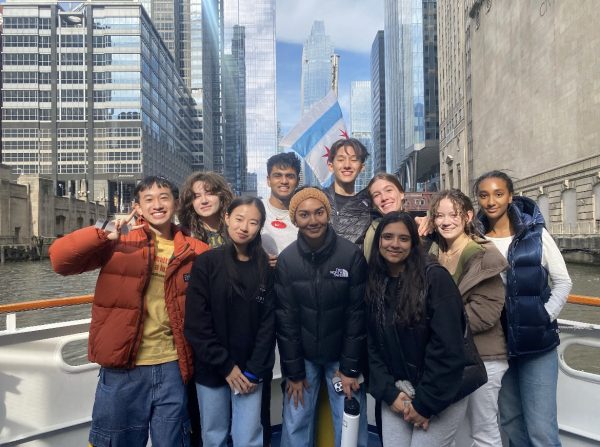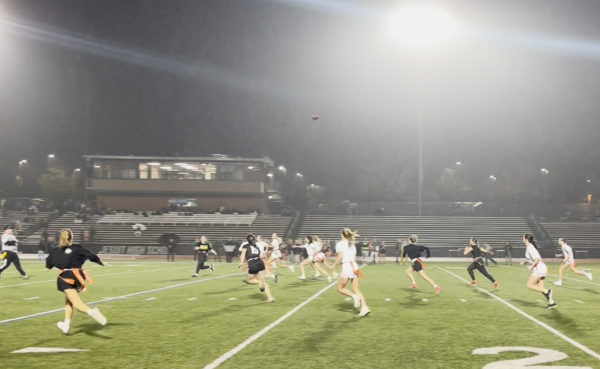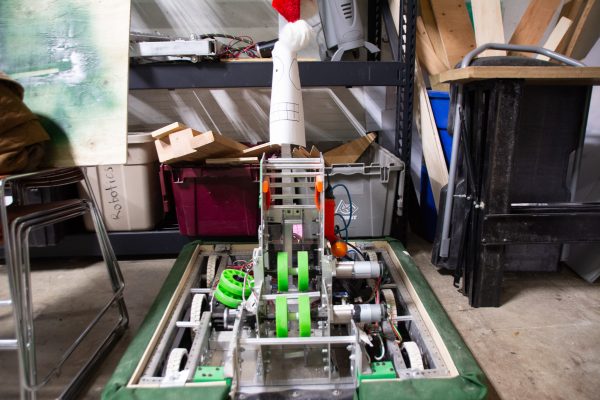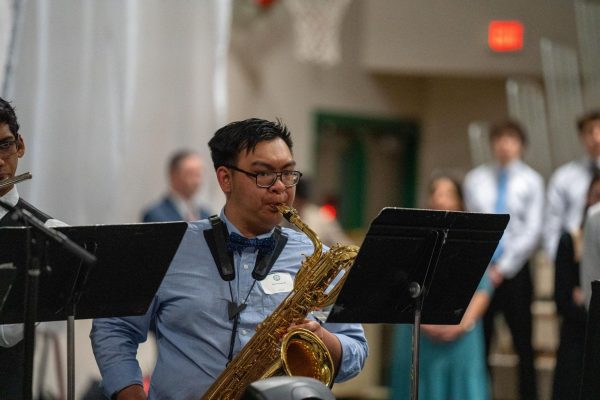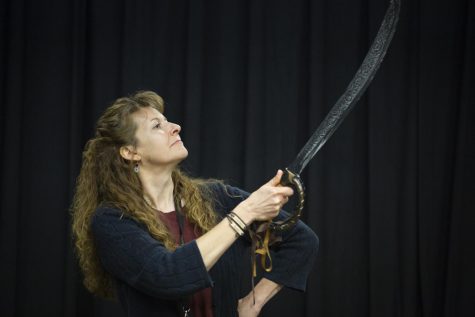How Catholicism and Retreats Intersect
A student sits by the McKenzie river during February Coed Encounter 4
At Jesuit, retreat forms plaster the walls of freshman and sophomore halls, and singing juniors run through the buildings after returning from their Encounter. As a Catholic school, Jesuit centers their retreats around God and Catholic ideas, allowing many students to explore and reinforce their faith.
“The goal of a retreat is to show students that having a relationship with God is something that is accessible for everyone, wherever or whoever you are, whatever practice you believe in,” English teacher Ms. Gray said.
However, Jesuit High School and its retreats are not solely composed of Catholic students. While retreats are not mandatory, many students of all faiths still attend. Therefore, students who may not hold Catholic beliefs often spend several days during a retreat in a space where Catholicism and its values are central to the experience, even if that ideology is not what they personally believe.
There are themes during retreats that invite students of all faiths to apply the retreat to their life. Many retreats include reflecting about challenges in life, relationships with others, and the love in one’s life.
“I think retreats are also an opportunity for kids to explore the challenges they have in their lives, challenges they have in relationships,” Ms. Gray said.
Hannah Johnson, a senior who identifies as agnostic, or “more spiritual but not religious” has been very involved in campus ministry, leading many retreats and Encounters. Though she may not completely share the Catholic views expressed on these retreats, she feels that she is still able to connect with the retreats and fully experience them.
“On retreats there’s usually also a focus on community, love, trust, forgiveness, or reconciliation,” Johnson said. “Anyone, no matter where they’re coming from, can connect with the retreat.”
Senior Elina Deshpande, who has also been a senior leader on encounters, was raised Hindu and feels a strong connection to Hinduism now. Similar to Johnson, her personal beliefs do not stop her from appreciating Jesuit’s retreats, observing the ways that Hinduism and Catholicism intersect.
“There are lessons in Hinduism that say we should love our neighbor like we love ourselves and our family, and I feel like Catholicism also has that message,” Deshpande said. “The fact that we do share these internal messages of being kind to each other, serving one another, and really working towards justice, that’s how I look at the Encounter.”
Additionally, it is important for Deshpande to appreciate and contribute to other religious traditions to show her respect and further her own faith.
“I was taught from birth that you show love to your religion by respecting others’ religions,” Deshpande said. “If that comes in the form of participating in retreats, being attentive at mass, and being super excited to lead the younger students so that they can possibly have the same experience that I did, then I’m more than happy to do that because it really aligns with my personal values as a Hindu.”
Mr. Clarke, director of campus ministry, emphasizes that all retreats are open to all members of the student body.
“Everything that happens in campus ministry is open to all students, except some areas of being involved in the Liturgy,” Clarke said.
Additionally, Clarke stresses that all retreats at Jesuit will have practices and references that are specifically Catholic. Things like mass, confession, and prayers regularly take place on retreats, and the subjects that are discussed often relate to God.
“All the talks people give on the Encounter, freshman and sophomore overnights, and the Pilgrimage are open to how students understand God’s work in the world,” Clarke said.




